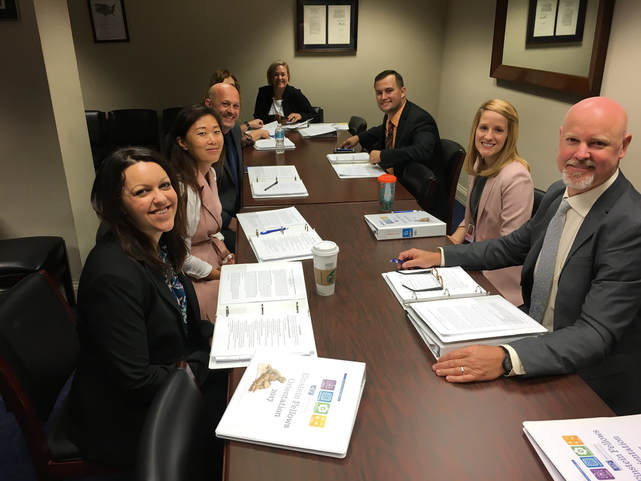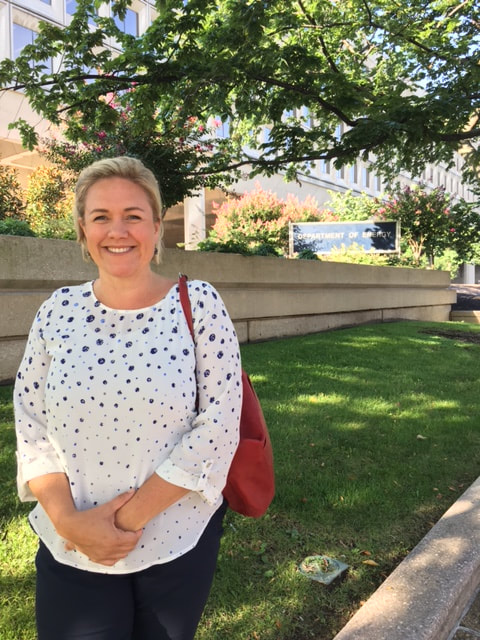|
Probably the question I have been asked most frequently is, "so, what will you be doing as an Einstein fellow?" Coming into the fellowship, I could really only reference the description available from the program website: Fellows spend eleven months working in Federal agencies or in U.S. Congressional offices, applying their extensive knowledge and classroom experiences to national education program and/or education policy efforts. At the end of the Fellowship, educators are prepared to return home, equipped with access to a national network of education leaders and programs, a better understanding of the challenges and possibilities in STEM education, and a renewed passion for teaching, ready to make significant contributions to their schools and school districts. OK, so what does that description actually look like in practice? The answer is, it depends on the fellow, the office in which they are placed, and the time of year. There are twelve Einsteins in the 2017-2018 cohort and each of our experiences in Washington, DC will differ greatly. Five of the current Einstein Fellows are placed in congressional offices, working as part of the team supporting the representative. The Einstein Fellows are often responsible for education related issues and bills, but not necessarily exclusively. The Fellow might also work on other issues, meet with constituents or network with staffers from other offices. Two Einstein Fellows are sponsored by NASA, involved with education programs and outreach for the Aeronautics Research Mission Directorate and at the Goddard Space Flight Center. There are four Fellows at the National Science Foundation, working across directorates to broaden participation in STEM programs. This year, I am the only fellow placed in the Office of Science at the Department of Energy. I am in a group focused on Workforce Development for Teachers and Scientists (WDTS). The WDTS program is committed to developing and supporting a pipeline of future STEM professionals and funds STEM education programs spanning from middle school to graduate student research. As a Fellow, I will be reviewing and updating K-12 STEM resources, tracking and reporting on STEM education studies and policy movements, exploring resources available at the Office of Science National Laboratories, and supporting the DOE National Science Bowl competition. I will also be focusing on my own professional development goals. Ultimately, I hope to learn as much as possible so that I can return to school next year with a greater understanding of the national STEM education programs, issues and strengths and continue work tirelessly to motivate and encourage my students to pursue higher education and professional opportunities in education or STEM fields. Are you a STEM educator Interested in becoming an Einstein Fellow? Applications are now open and available here. Applications are due November 16th, so act quick!
|
Archives
July 2018
|
I give many of my IB Biology resources away, for the benefit of students and teachers around the world.
If you've found the materials helpful, please consider making a contribution of any amount
to this Earthwatch Expedition Fund.
Did I forget something? Know of a mistake? Have a suggestion? Let me know by emailing me here.
Before using any of the files available on this site,
please familiarize yourself with the Creative Commons Attribution License.
It prohibits the use of any material on this site for commercial purposes of any kind.
If you've found the materials helpful, please consider making a contribution of any amount
to this Earthwatch Expedition Fund.
Did I forget something? Know of a mistake? Have a suggestion? Let me know by emailing me here.
Before using any of the files available on this site,
please familiarize yourself with the Creative Commons Attribution License.
It prohibits the use of any material on this site for commercial purposes of any kind.

